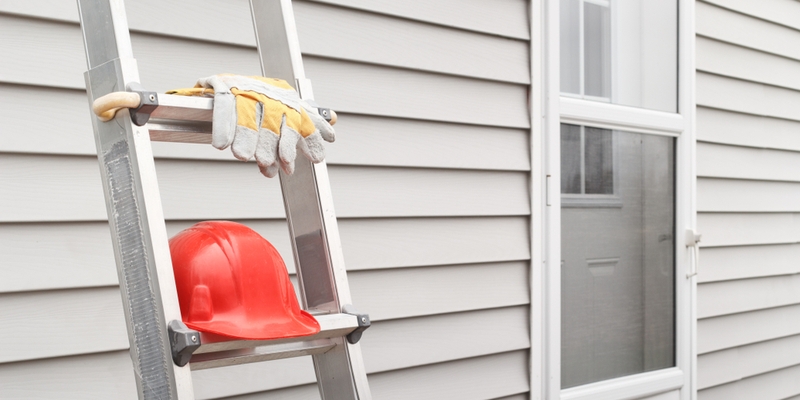
If you are not redirected within 30 seconds, please click here to continue.
Samedi: 10h – 16h HAE

If you are not redirected within 30 seconds, please click here to continue.
If you are not redirected within 30 seconds, please click here to continue.
Home Inspections 101: Why you don’t want to skip this critical step

In the hot Canadian housing market, offers can get competitive–so competitive that some would-be homeowners might decide to skip the home inspection and make an unconditional offer. But is this a good idea?
Should you get a home inspection?
Yes! You should get a certified home inspector to do a home inspection when house-hunting. While you’re not legally obligated to get a home inspection, without one, you may face unpleasant surprises months or years down the road. A home inspection helps you identify any major issues you would have to address as the homeowner, potentially saving you thousands of dollars in costly repairs if it deters you from buying an unsuitable home.
Sometimes a homeowner will get a home inspection before they put a property on the market. While this is a helpful source of information for buyers and sellers alike, any serious buyers should still hire an inspector of their own. You never know what may have been overlooked and you’ll have the opportunity to ask the inspector detailed questions about any issues.
If you’re thinking of buying a pre-construction home, you should still get a home inspection. Sometimes projects are rushed, or one of the contractors may have made a mistake. It’s better to get a full picture of the home and address any significant issues before you move in.
Here are some of the benefits and risks of getting a home inspection in more detail.
Benefits
● Home inspectors can sometimes identify issues you wouldn’t have noticed until it was too late.
● You’ll know what’s going on with the home, and you can make an informed decision about whether to buy it.
● You’ll have peace of mind that there aren’t any major safety issues, such as electrical or structural problems.
● Armed with the knowledge that you may have to do certain repairs down the road, you can budget appropriately.
● Sometimes you can use the info you got from the home inspection to negotiate with the seller and reduce the cost of the home.
● If the home inspector flags a major issue, it may lower the actual property value stated on the home appraisal, which might affect your final mortgage approval.
Risks
● Home Inspectors aren’t free – they often cost between $300 to $500. So, if you inspect multiple homes before you put in an offer, the money can add up. However, this is balanced against the money you could spend on costly home repairs without an inspection.
● Home inspections won’t uncover everything. They aren’t going to open up your walls to look for hidden problems or pull up any floorboards. There could still be issues lurking under the surface.
● If you have a specific issue, you may need more expert help beyond what an inspector can do. For example, some mould or pest problems require the help of a specialist.
If you’re the one selling the house, sometimes getting a home inspection can also benefit you. By providing the inspection report to potential buyers, you can give them peace of mind that they know what they’re getting into.
Related: 5 renovations to increase your home's value, and their impact on your home insurance rate
What does a home inspector do, exactly?
A home inspector will look at the property's overall condition and point out any potential or current issues. They will walk around the interior and exterior of the house with a checklist and make a note of any problems, including the following:
● The exterior of the home, including the foundation, walls, siding, windows, roof, and overall structural integrity of the building.
● The interior of the house, including the walls, ceilings, floors, and doors.
● The plumbing, including includes pipes, fixtures, water pressure and supply, and drainage.
● The electrical system, including electrical panels, outlets, and switches.
● The HVAC system, which includes heating, ventilation, and AC.
● Insulation type and amount.
● Any signs of water damage or structural issues in the basement or crawlspace.
For sellers, getting a pre-listing inspection can be beneficial as it allows you to address any issues before putting the property on the market, potentially increasing its appeal to buyers.
Personal home inspection list
Of course, you can identify some things on your own without the help of a professional. Here is a starting point for some issues to look out for when you assess a potential home:
● Turn all the lights on and off.
● Turn the taps and showers on (hot and cold water) and check for leaks under the sink.
● Open and close all the doors; flush all the toilets.
● Open and close all the windows.
● Take a good look at the ceilings, walls and floors.
● Turn on the heating and AC.
● Look at the roof and gutters to see if you can see any issues.
● Check for signs of pests (droppings, etc.).
● Test all the stove burners.
● Look closely everywhere for signs of mould.
Don't gamble on your future home
Buying a home without an inspection is a gamble, pure and simple. Before you make what is likely the biggest purchase of your life, it’s worth getting a professional evaluation from a certified home inspector. Look at their credentials and training so that you can be sure they have the expertise and experience to assess your home properly.
A good place to start is the Canadian Association of Home and Property Inspectors, where you can connect with a certified home inspector in your area. As with any professional you hire, read the reviews first and vet them carefully to make sure that you’re getting into, or ask for a recommendation from family and friends.
Compare Mortgage Rates
Engaging a mortgage broker before renewing can help you make a better decision. Mortgage brokers are an excellent source of information for deals specific to your area, contract terms, and their services require no out-of-pocket fees if you are well qualified.
Here at Rates.ca, we compare rates from the best Canadian mortgage brokers, major banks and dozens of smaller competitors.
Get money-saving tips in your inbox.
Stay on top of personal finance tips from our money experts!








